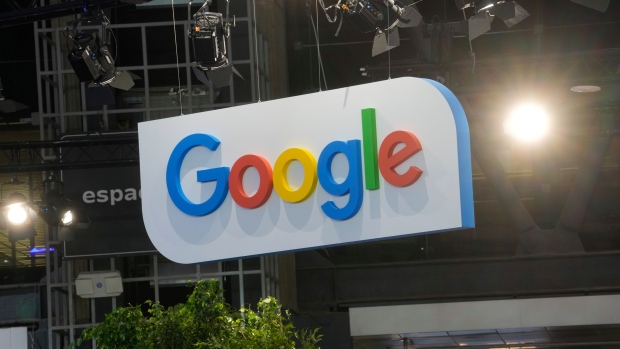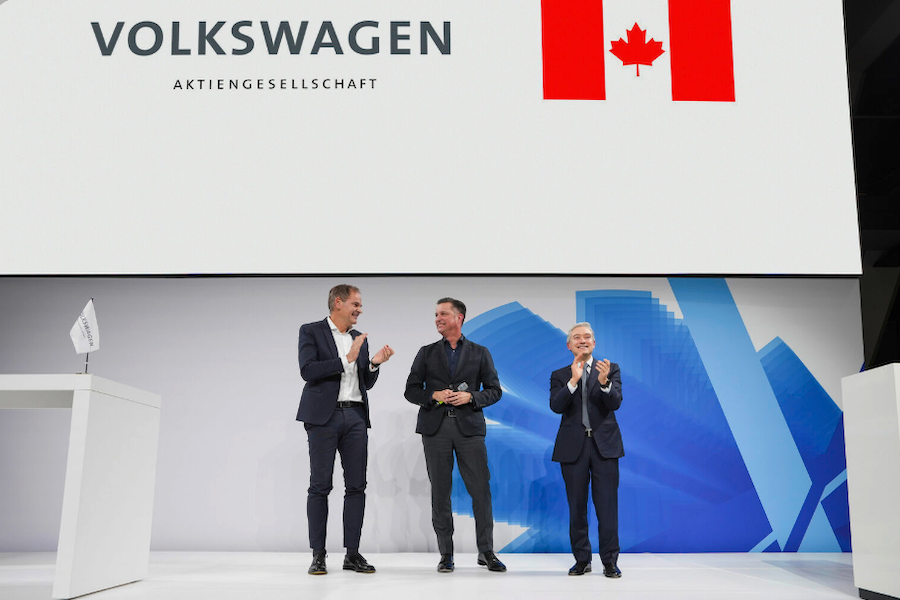Google should break up digital ad business over competition concerns, European regulators say
,
The Associated Press Jun 14, 2023

BRUSSELS — European Union regulators hit Google with fresh antitrust charges Wednesday, saying the only way to satisfy competition concerns about its lucrative digital ad business is by selling off parts of the tech giant's main moneymaker.
The unprecedented decision to push for such a breakup marks a significant escalation by Brussels in its crackdown on Silicon Valley digital giants, and follows a similar move by U.S. authorities seeking to bust Google's alleged monopoly on the online ad ecosystem.
The European Commission, the bloc's executive branch and top antitrust enforcer, said its preliminary view after an investigation is that “only the mandatory divestment by Google of part of its services” would address the concerns.
The 27-nation EU has led the global movement to crack down on Big Tech companies — including moving closer to groundbreaking rules on artificial intelligence — but it has previously relied on issuing blockbuster fines, including three antitrust penalties for Google worth billions.
It is the first time the bloc has told a tech giant that it should split up key parts of its business over violations of the EU's strict antitrust laws, though details on what that could look like are not clear following the preliminary finding.
Google can now defend itself by making its case before the commission issues its final decision. The company said it disagreed with the finding and “will respond accordingly,” adding that the EU’s investigation focused on a narrow part of its ad business.
“Our advertising technology tools help websites and apps fund their content, and enable businesses of all sizes to effectively reach new customers," said Dan Taylor, Google vice president of global ads. "Google remains committed to creating value for our publisher and advertiser partners in this highly competitive sector."
The commission's decision stems from a formal investigation that it opened in June 2021, looking into whether Google violated the bloc’s competition rules by favoring its own online display advertising technology services at the expense of rival publishers, advertisers and advertising technology services.
Online display ads are banners and text that appear on websites such as newspaper home pages and are personalized based on an internet user’s browsing history.
European Commission Vice President Margrethe Vestager says Google is dominant on both sides of the ad-selling market. Google abused that position by favoring its own ad exchange, reinforcing its ability to charge a high fee for its services, the commission said.
“Google is representing the interests of both buyers and sellers. And at the same time, Google is setting the rules on how demand and supply should meet,” she said at a news conference. "This gives rise to inherent and pervasive conflicts of interest."
Vestager added that if Google sold off, for example, its real-time marketplace for buying and selling ads or a tool for publishers to manage their ads, “we would put an end to the conflicts of interest.”
The commission is seeking a forced sale because past cases that ended with fines and requirements for Google to stop anti-competitive practices have not worked, allowing the company to continue its behavior, “just under a different disguise,” she said.
"This is a big deal" and a sign that the commission has “lost all trust in Google and lost all trust in those behavioral remedies” mandating changes to the way it operates, said Rich Stables, CEO of rival search engine Kelkoo, which was involved in two of the EU's previous Google antitrust cases.
Google's ad tech business is also under investigation by Britain's antitrust watchdog and faces litigation in the U.S. that calls for the company to divest its digital ad tools.
European and U.S. authorities are acknowledging that “the only way to address this egregious conflict of interest is to force Google to divest part of its business,” said Max von Thun, director of the Europe office of the Open Markets Institute, a proponent of stronger antitrust enforcement.
The commission’s move is “a clear illustration of the power competition authorities have when they work in parallel,” he said.
Brussels has previously hit Google with more than 8 billion euros (now US$8.6 billion) worth of fines in three separate antitrust cases, involving its Android mobile operating system and shopping and search advertising services. The company is appealing all three penalties.
EU regulators can impose penalties worth up to 10 per cent of annual revenue and also could fine Google alongside any sale order.
Google brought in $54.5 billion in ad sales and YouTube earned nearly $6.7 billion in ad sales in the first three months of the year, but that marked a back-to-back slump as companies spend more cautiously.
___
Chan reported from London.
Brussels, my love? The EU’s groundbreaking attempt to regulate AI clears its first hurdle
Host Méabh Mc Mahon in the European Parliament in Strasbourg with MEPs Patrick Breyer, Arba Kokalari and Barry Andrews - Copyright EuronewsIn this edition of Brussels, my love?, we discuss the EU's recent decision to be the first to regulate artificial intelligence. Some parties, however, were not completely happy with the final compromise.
This week we were joined by a panel of MEPs: Patrick Breyer, German MEP from the Pirate Party, Arba Kokalari, Swedish MEP from the Moderate Party, and Barry Andrews, Irish Fianna Fail MEP.
The European Parliament voted on the world’s first comprehensive set of rules for artificial intelligence this week. As the parliament headed for Strasbourg, all eyes were on MEPs for this groundbreaking vote which passed with 499 votes in favour, 28 against and 93 abstentions.
Arba Kokalari was one of the few who voted against the AI regulation, arguing that the regulation of facial recognition technology will hurt Europe
“The vote today from the European Parliament [is] shutting the door on using this very important technique in very specific matters as terrorism, child kidnapping. I think for me that was a red line to vote against,” she said.
However, Patrick Breyer said the regulation is a positive feat. “I think it’s been quite a historic week,” said the German MEP. “The parliament backing a full ban on real-time biometric mass surveillance saves our society from a future of mass surveillance.”
Discussions over implementing this regulation have started in EU capitals and the hope is to have this over the line by the end of the year.
Panelists also discussed the Commission’s proposal for an inter-institutional ethics board. This comes after months of scandal (such as the so-called Qatargate) in an attempt to clean up their image.
However, Barry Andrews believes the ethics board won’t be able to tackle such a large issue. “It was very disappointing,” he said. “The budget is €600,000 with three staff [members]. It's really impossible to see how that would make an impact or that it's proportionate to the problem that is being identified.”



